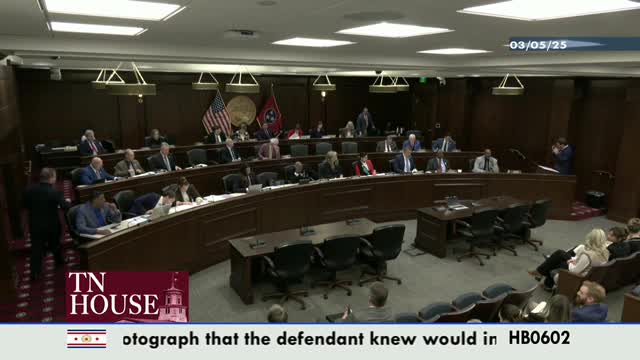Committee forwards ‘Voyeurism Victims Act’ after advocates describe secret recordings and organized files
Get AI-powered insights, summaries, and transcripts
Subscribe
Summary
House Bill 602, which tolls the statute of limitations in some unlawful photography cases, defines dissemination and allows petitioning for protective orders, passed the Judiciary Committee unanimously after multiple victims testified.
House Bill 602, titled the Voyeurism Victims Act, advanced from the House Judiciary Committee on a 22-0 vote after victims described systematic secret recordings and asked lawmakers to change statutes that hinder justice.
The sponsor, Representative Freeman, told the committee the bill does three things as amended: add a definition of “disseminate” for unlawful photography (to mean transfer, publish, or otherwise make accessible); toll the statute of limitations to the date of discovery where the defendant concealed the crime; and allow victims to petition courts for an order of protection.
"Part of the problem with these types of crimes is it takes the feeling of power away from people," Representative Freeman said. "If this bill passes, we're gonna give these women some power back." The sponsor said the bill was developed with survivors and local advocates.
Victims told the committee they found hidden cameras, organized files and thousands of explicit recordings. Christiana Warner, who described discovering a hidden camera in a partner’s alarm clock and thousands of files organized by victim name, testified: "This man is a serial offender... Digital videos can be uploaded and shared who knows where. Digital media files last forever." Warner said she was denied an order of protection because unlawful photography did not meet criteria under existing law.
Erica Thomas, who identified herself as one of the victims whose files Warner described, told lawmakers the bill would not necessarily help her own case but would help future victims: "We are here today because our lawmakers chose to hear us, support us, and stand beside us... This is about everyone who comes after us. This is about justice, true justice."
Committee members sought legal clarification about tolling and whether the bill’s current drafting imposed a requirement that the prosecution prove the defendant concealed the crime before tolling could apply. Legal Services explained the bill references statutory tolling language and that the effect, as drafted, would start the statute of limitations on the date the victim discovered the crime when concealment exists. Representative Freeman said he worked with Legal Services on the drafting but deferred to counsel for technical questions.
The Judiciary Committee voted 22 ayes, 0 nos to send House Bill 602 as amended to calendar and rules.
Ending: The bill now goes to calendar and rules for scheduling; sponsors and survivor-advocates said they intend the measure to provide additional tools and time for prosecution and civil relief.
